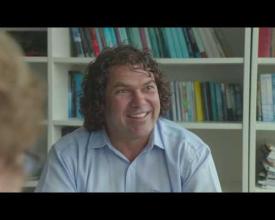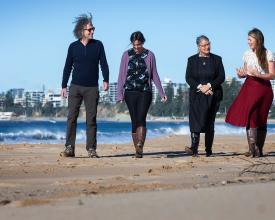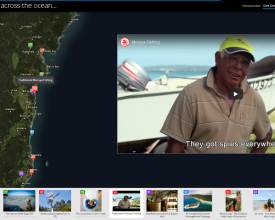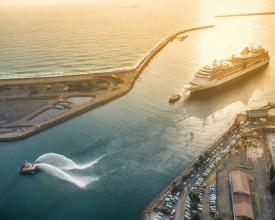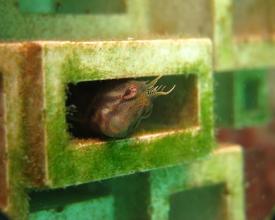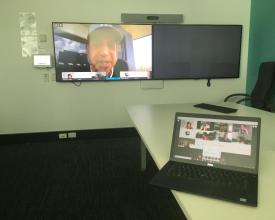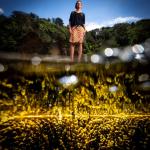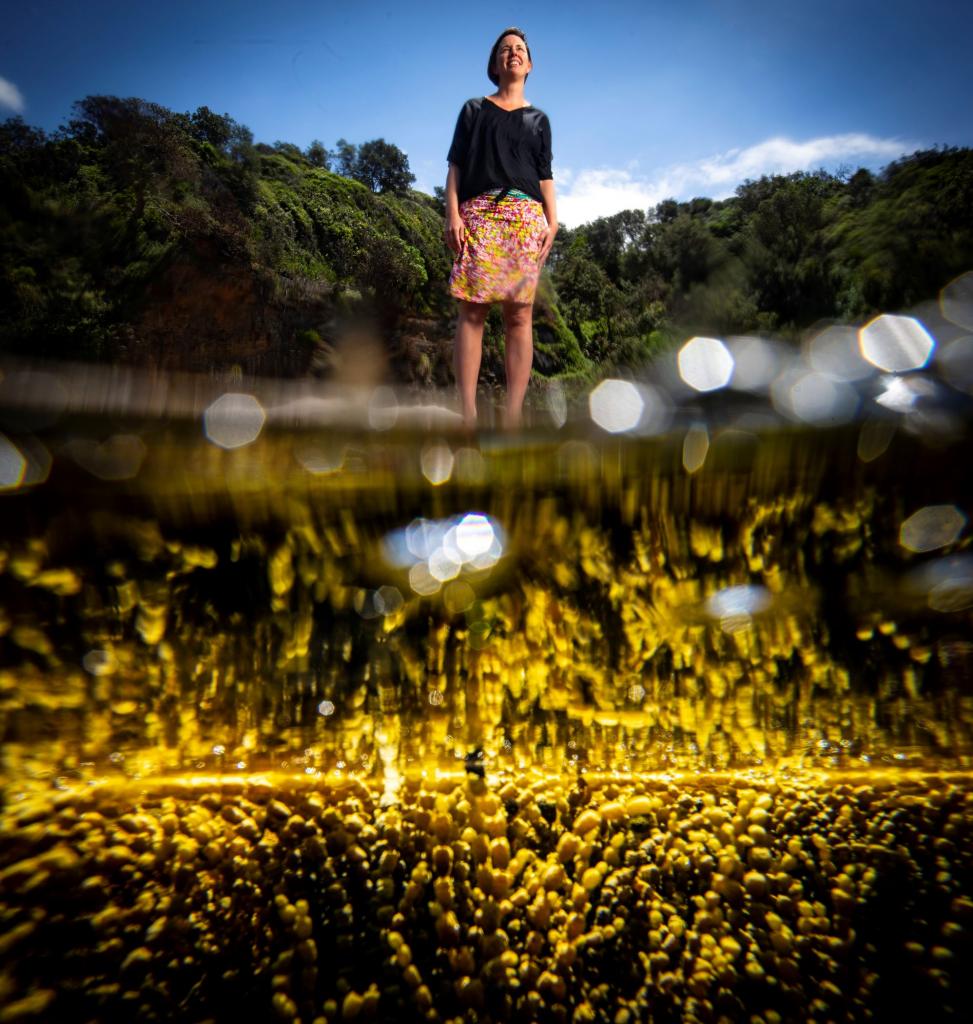
Exploring community based approaches to the Blue Economy
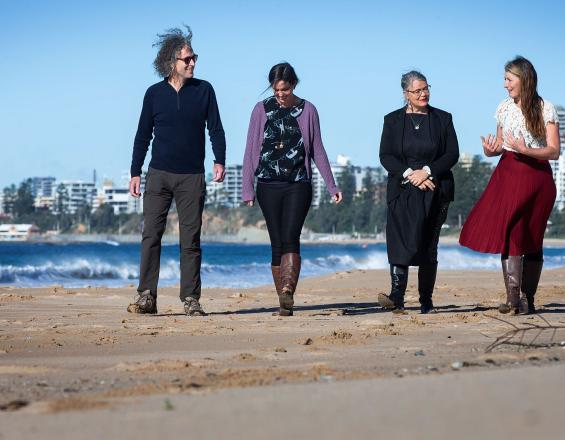
The University of Wollongong (UOW), through the Global Challenges program, has been exploring community based approaches to the Blue Economy since 2016. The program of works began with a small internal ’scoping’ study, which explored the capacity of UOW to contribute to a sustainable and socially equitable Blue Economy in our region (Southeast NSW). It then examined the historical contribution of maritime industries to our region followed by a ‘stocktake’ of existing businesses and activities in the region that rely on healthy ocean ecosystems. The current Blue Futures ‘keystone’ project is a collaboration between university researchers and the Illawarra Local Aboriginal Land Council, that functions to explore and make advancements in the governance, relationships, and innovations around the future of a blue economy in our region. The project operates from and is informed by a local Aboriginal worldview and relationship to knowledges.
Contexto
Défis à relever
The Blue Economy is a contested concept that has been criticized for focusing too heavily on economic outcomes at the expense of environmental and social objectives. We actively sought to explore means through which social and cultural outcomes could be foregrounded and prioritised to build an alternative, and more sustainable vision for a Blue Future. This required thinking outside the box and engaging with diverse disciplinary and cultural knowledges. Our research has sought to embrace the complexity of Ocean Governance by an inclusive and highly networked approach. By pulling it all together we are able to truly look at holistic and innovative solutions.
Ubicación
Procesar
Summary of the process
All the building blocks have a strong focus on relationship building, network development and developing a shared vision, which are fundamental to our plans of building a Blue Future for our region.
Building Blocks
Taking stock of the existing Blue Economy
Before embarking on a journey to build a community based approach to a Blue Economy we felt it was important to first understand where we had come from and where we are now. We examined the historical role of maritime businesses on the NSW South Coast and the existing economic, social and cultural relationships of South Coast communities with the ocean. The result was a Blue Futures ‘Story map’ which details the diverse ways in which businesses, community groups and individuals engage with the ocean in our region.
When ‘taking stock’ of a region’s blue economy potential, the story map design ensured that no one social, environmental or economic angle was prioritized over another. Instead, space became the organizing principle, enabling users to scroll around the map to learn about what was important to the blue economy around them. In practice, this meant that employment statistics, historic coastal artworks and ocean governance examples appeared alongside clean ocean tech startups and established marine industries. The map brings these data into conversation with each other in the mind of the viewer, purely by their spatial proximity. This is an important first step in raising the profile of cultural and social data for developing blue economy solutions, which are often overlooked in favour of quantifiable statistics.
Enabling factors
This building block was enabled by a multidisciplinary team committed to working across traditional disciplinary silos. Artists worked with geographers, economists and environmental scientists to gather together a breadth of visual and textual materials for inclusion in the story map.
Lesson learned
We underestimated how long the storymapping process would take. Substantial time was needed to bring together digital resources, rights for image use (both from companies, artists and museums/archives) and for trialing different story map styles to best suit the project scale and range of sources.
Collating diverse data sources together in a publically accessible and easy to navigate story map gave this building block a larger audience both locally and globally than a traditional written report or textual media release. The story map educated diverse audiences about the ‘blue economy’ and ‘blue future’ concepts which would be viewed by many as otherwise amorphous or niche ideas, at a distance from their everyday lives.
Fostering relationships across disciplines and across the community
The University of Wollongong (UOW) Blue Economy projects recognized that building a community based approach requires an investment in relationships. This means that we expended considerable resources in building networks, fostering relationships and giving those relationships time to mature and evolve. This occurred internally, as we got to know the different disciplinary areas that different team members represented within the project. It also involved building collaborations with external partners over time. The most significant demonstration of this the growing role of Aboriginal partners in the research. Aboriginal partners and co-investigators had input into the early stages of the project and over time this relationship grew and evolved to the point that today our partners, the Illawarra Local Aboriginal Land Council, are co-leaders in the project and are co-developing future collaborations with UOW.
Enabling factors
- Time
- Regular engagement
- Active listening
- Open minds
Lesson learned
Investing time and energy into building relationships is difficult to build into traditional academic and institutional practices. It is important for the relationship to be based on the principles of reciprocity, so that all partners benefit from the exchange of knowledge and information.
Resources
Decolonising our research
One of the major learnings from the evolution of the University of Wollongong's (UOW) Blue Economy work is the need to be open to alternative ways of seeing the world. Our partnership with the Illawarra Local Aboriginal Land Council and the influence of our Aboriginal co-investigators have led to a significant focus on decolonising our research, and methods for decolonising environmental decision making. This has largely involved a series of workshops with team member and Traditional Knowledge Holder Jade Kennedy, who pioneered the innovative Jindaola program within UOW. The Jindaola program is designed to reconcile and build relationships across different knowledge systems.
Enabling factors
The entire research team underwent regular and routine engagement with our Indigenous coinvestigators. Indigenous Blue Futures became a cross cutting strategy in the project which influenced all aspects of project design, methodology analysis and reporting.
Lesson learned
We learned through this process that we all carry with us our own sets of values and assumptions that will always influence our research and the ways we see the world. Engaging with the learnings of Jindaola allowed us to examine and challenge those existing values and assumptions and opened the way for more innovative and collaborative ways of thinking.
Resources
Impacts
The research conducted by UOW to date has had the following key impacts:
- It has built strong and lasting relationships with Aboriginal partners on the coast which will form the basis of future collaborations and outcomes
- It has identified and drawn attention to the range of large and small businesses that exist in our region which rely on healthy marine ecosystems. In particular it has created a network with and between innovative businesses in the region and highlighted their potential role in a sustainable and equitable Blue Future
- It has highlighted the diverse range of cultural and social values that inform our relationships with the coast and identified means through which these values might be better articulated in Blue Economy narratives
- It has brought together researchers, governance / agencies, industry and the broader community to share research and engage all in the visioning and movement towards achieving Blue Economy aspirations
Beneficiaries
- Local communities on the NSW South coast, particularly Aboriginal communities particularly through increased representation of social and cultural values in decision making processes
- Decision makers in the field of ocean governance

